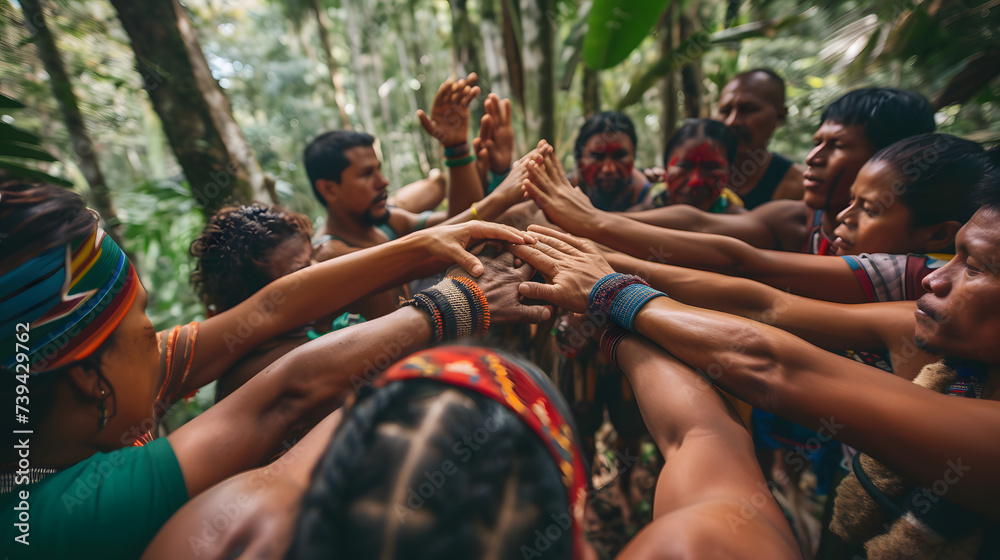Preserving Cultural Heritage: How Indigenous Scientists Protect Their Data

Table of Contents
The Unique Challenges Faced by Indigenous Data
Indigenous data, encompassing traditional ecological knowledge, oral histories, language archives, and genetic information, is uniquely vulnerable. Its inherent value makes it a target for misappropriation, exploitation, and misrepresentation, threatening the very heart of Indigenous communities. The challenges are multifaceted:
-
Lack of control over data collected by external researchers: Historically, Indigenous communities have had limited control over data collected by external researchers, leading to misinterpretations, misuses, and a lack of benefit sharing. This often involves the absence of Free, Prior, and Informed Consent (FPIC), a fundamental right for Indigenous peoples.
-
Potential for cultural misinterpretations and misuses of data: Data taken out of its cultural context can be easily misinterpreted, leading to inaccurate representations of Indigenous knowledge and potentially harmful consequences. The sacred nature of some data further underscores the need for careful handling and respect.
-
Erosion of traditional knowledge through data loss or inappropriate access: Data loss, whether accidental or deliberate, represents an irreversible loss of invaluable cultural heritage. Inappropriate access can also lead to the erosion of traditional knowledge systems, passed down through generations.
-
Loss of intellectual property rights: Indigenous knowledge often holds significant intellectual property value, including traditional medicine, agricultural practices, and artistic expressions. Unauthorized use and commercialization can lead to significant financial and cultural losses.
Strategies for Protecting Indigenous Data Sovereignty
Indigenous communities are proactively developing and implementing strategies to assert their data sovereignty – the right to govern the collection, ownership, control, and application of their data. These strategies include:
-
Developing community-based data governance frameworks: These frameworks establish clear protocols for data access, use, and sharing, ensuring that Indigenous communities retain control over their information.
-
Implementing data access protocols that prioritize Indigenous perspectives: Protocols are designed to ensure that data is interpreted and used in a way that aligns with Indigenous values and perspectives, preventing misinterpretations and misuses.
-
Utilizing Indigenous knowledge systems alongside Western scientific methods: This integrated approach recognizes the value of both traditional and scientific methodologies, creating more comprehensive and culturally sensitive research.
-
Employing secure data storage and management technologies: Secure cloud storage, encryption, and other technologies are utilized to protect data from unauthorized access and loss.
-
Creating culturally appropriate data visualization and dissemination strategies: Data visualization methods are adapted to reflect Indigenous cultural preferences and ensure accurate and respectful communication of research findings.
The Role of Indigenous Scientists and Knowledge Holders
Indigenous scientists and knowledge holders are central to these efforts. They are not merely subjects of research but active participants, leaders, and guardians of their data. Their roles include:
-
Leading data collection initiatives in their own communities: This ensures that data is collected ethically and accurately, reflecting Indigenous perspectives and priorities.
-
Training community members in data management and ethical practices: Building capacity within communities ensures the long-term sustainability of data governance efforts.
-
Advocating for policies that protect Indigenous data rights: Indigenous scientists play a crucial role in advocating for policy changes at local, national, and international levels.
-
Collaborating with external researchers in respectful and equitable partnerships: When collaboration is necessary, Indigenous scientists ensure that partnerships are built on mutual respect, benefit-sharing, and adherence to FPIC.
The Importance of Collaboration and Ethical Partnerships
Respectful collaboration between Indigenous communities and external researchers is paramount. This necessitates a shift from extractive research models to partnerships based on mutual respect and benefit-sharing. Key aspects include:
-
Free, Prior, and Informed Consent (FPIC) as a fundamental principle: FPIC ensures that Indigenous communities have the right to give or withhold consent to research projects affecting them.
-
Data sharing agreements that respect Indigenous ownership and control: Agreements should clearly outline the ownership, access, and use of data, guaranteeing Indigenous control.
-
Capacity building and knowledge transfer to empower Indigenous communities: Collaborations should focus on building the capacity of Indigenous communities to manage and utilize their data independently.
-
Beneficial sharing of research outcomes with participating communities: Research results should be shared with participating communities in a timely and accessible manner, ensuring that they receive the benefits of the research.
Technological Innovations Supporting Data Preservation
Technological advancements are crucial for securing and preserving Indigenous data. Innovative solutions include:
-
Secure cloud storage solutions tailored for Indigenous needs: Cloud platforms offering robust security features and culturally appropriate interfaces are becoming increasingly important.
-
Digital archiving and preservation techniques for traditional materials: Digital archiving techniques help preserve fragile traditional materials, such as oral histories and artwork, while making them accessible to wider audiences.
-
Development of culturally appropriate data visualization tools: Tools that allow Indigenous communities to visualize and interpret their data in culturally relevant ways are vital for ensuring accurate representation.
-
Use of blockchain technology for secure data management and provenance tracking: Blockchain can help enhance data security and transparency, enabling clear tracking of data ownership and usage.
Conclusion
Protecting Indigenous data is crucial for preserving cultural heritage and ensuring the continuity of traditional knowledge. Indigenous scientists are at the forefront of developing effective strategies for data sovereignty and ethical data management. Their leadership in this area is essential for fostering respectful collaborations and ensuring the responsible use of invaluable cultural information. Preserving cultural heritage through Indigenous-led data management initiatives is not just a responsibility; it's a moral imperative.
Call to Action: Let's actively support Indigenous-led initiatives aimed at preserving cultural heritage and promoting ethical data practices. By collaborating respectfully and learning from Indigenous scientists, we can all contribute to the safeguarding of this vital knowledge for future generations. Learn more about supporting Indigenous data sovereignty and the preservation of cultural heritage.

Featured Posts
-
 Brazils Ev Market Shift Byds Global Expansion And Fords Retreat
May 13, 2025
Brazils Ev Market Shift Byds Global Expansion And Fords Retreat
May 13, 2025 -
 Drug Pricing Republicans Budget Bill Targets Middlemen
May 13, 2025
Drug Pricing Republicans Budget Bill Targets Middlemen
May 13, 2025 -
 Landman Backlash Billy Bob Thornton Speaks Out For Ali Larter And Angela Norris
May 13, 2025
Landman Backlash Billy Bob Thornton Speaks Out For Ali Larter And Angela Norris
May 13, 2025 -
 Game 25 2025 Dissecting The Chicago Cubs Heroes And Goats
May 13, 2025
Game 25 2025 Dissecting The Chicago Cubs Heroes And Goats
May 13, 2025 -
 Executive Order Aims To Lower Prescription Drug Prices Analysis
May 13, 2025
Executive Order Aims To Lower Prescription Drug Prices Analysis
May 13, 2025
